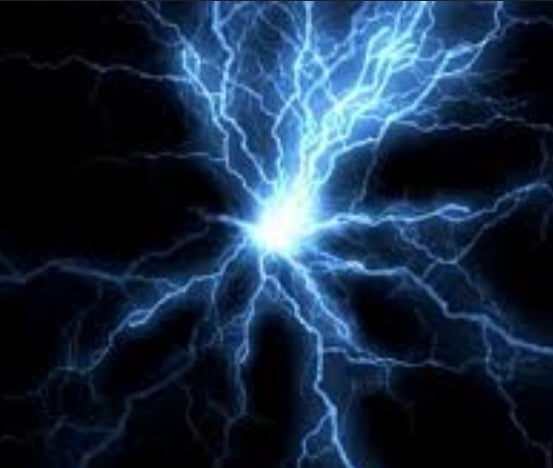I fall into the None category. Even if I wanted to be religious, the time, social requirement, and built-in costs just wouldn’t work for me around work, school, daily shit that needs to get done. I don’t know how people with lower incomes do it.
They let their magic sky daddy’s zombie orphan “take the wheel”. Duh.
So many Nuns!
I think it’s time we addressed the War On Nothing that’s happening every year.
I demand to be greeted with “Hi how are you” in late December, not “Merry Christmas” or “Happy Holidays”.WHY WON’T STARBUCKS BRING BACK THE CUPS THAT SAY ‘WHAT IT DO, PIMPIN?’
What’s wrong with New Year as a holiday?
Holy day you say?
Yeah, that’s the word. Its etymology does have religious roots, but the concept itself is not exclusive to religion at all.
This is the best summary I could come up with:
A new study from Pew Research finds that the religiously unaffiliated – a group comprised of atheists, agnostic and those who say their religion is “nothing in particular” – is now the largest cohort in the U.S.
Back in 2007, Nones made up just 16% of Americans, but Pew’s new survey of more than 3,300 U.S. adults shows that number has now risen dramatically.
“And huge numbers say the desire to avoid hurting other people factors prominently in how they think about right and wrong,” says Smith.
People of faith also say they use logic and the avoidance of harm to make decisions, but those factors are in concert with religious tradition and scripture.
But digging deeper into the data shows that men are significantly more likely to say they’re atheist or agnostic whereas women are more likely to describe their religion as ‘nothing in particular.’
Smith says that’s consistent with other research as well, which shows, “women tend to be more religious on average than men.”
The original article contains 690 words, the summary contains 167 words. Saved 76%. I’m a bot and I’m open source!
deleted by creator
No. Not in this study.
A new study from Pew Research finds that the religiously unaffiliated – a group comprised of atheists, agnostic and those who say their religion is “nothing in particular” – is now the largest cohort in the U.S. They’re more prevalent among American adults than Catholics (23%) or evangelical Protestants (24%).
Atheism is much more specific than what they consider to be, ‘none’.
Pew asked respondents what – if anything – they believe. The research organization found that Nones are not a uniform group.
Most Nones believe in God or another higher power, but very few attend any kind of religious service.
They aren’t all anti-religious. Most Nones say religion does some harm, but many also think it does some good. Most have more positive views of science than those who are religiously affiliated; however, they reject the idea that science can explain everything.
TL;DR: The study is talking about agnostics, and grouping atheists with them.
No, agnosticism is a whole other issue from any of this. Agnosticism, technically speaking, is the position “it is impossible to know whether a god or gods exist.” That’s a separate position from “I do not believe that gods exist”, “I believe that gods do not exist”, and “I believe that gods exist.” You can be an agnostic theist or a non-agnostic atheist. They’re along two different axes, like the Dungeons and Dragons alignment system with the law/order and good/evil axes.
Unfortunately the term has gained some additional meanings in common parlance, where it can commonly mean “I’m an atheist/theist but I don’t want to say that because it gets me in trouble.” Or “I’m not sure what I think so I’m going with the option that sounds the most unsure.”
It’s led to a huge mess when trying to categorize belief systems in polls like this one.
Interesting, I didn’t realize that. Thank you
Removed by mod
-
I don’t think you understand the definition of Agnosticism.
-
Define God(s)
Removed by mod
-
So the problem still exists, it’s just more insane spiritual types and less organised.
That’s only 10% of Americans who are atheists or agnostic.
Don’t forget the various US political religions like Founding Fatherism and Trumpism.
however, they reject the idea that science can explain everything.
I am an anti-theist and I reject that idea too, doesn’t mean I think religion can explain anything though. In fact I would go so far as to consider that deliberately obscure phrasing in the poll.
Science can only explain things that can be measured and tested. Anything else is pure speculation.
Anyone who thinks science can explain everything, does not understand the scientific method.
Article. We read the Article.
“ Most Nones believe in God or another higher power, but very few attend any kind of religious service.
They aren’t all anti-religious. Most Nones say religion does some harm, but many also think it does some good. Most have more positive views of science than those who are religiously affiliated; however, they reject the idea that science can explain everything.”
Damn, had my hopes up and everything.
This is just one generation removed from Atheism
Sure, I just think it’s important to note that we aren’t there yet. Most of these people need community, we need to create it for them!






